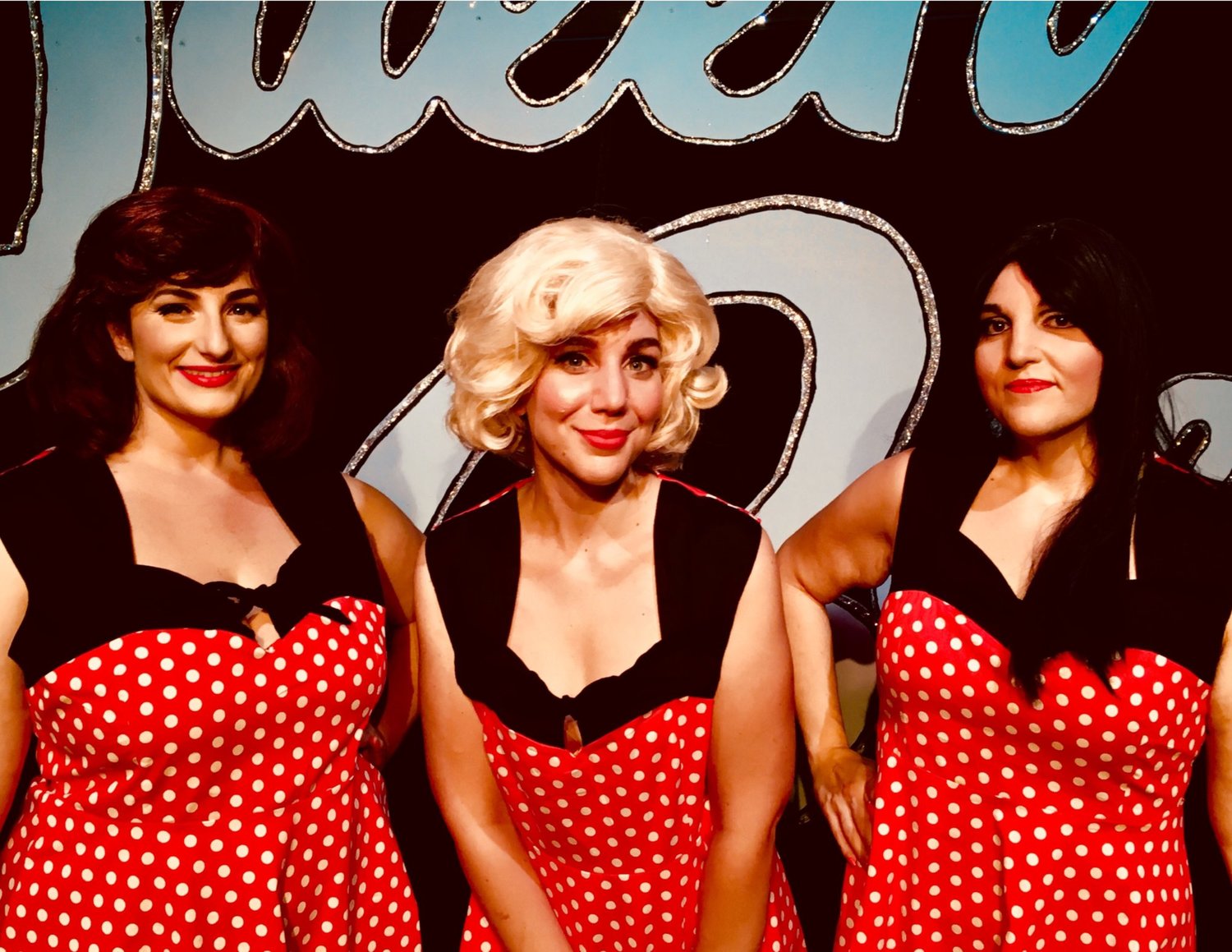Review: THE QUEEN BEES at Connecticut Cabaret Theatre

On Saturday, July 7, I had the pleasure of seeing THE QUEEN BEES at the Connecticut Cabaret Theatre in Berlin, CT. Yet again, the Connecticut Cabaret Theatre has put forth a high quality production with a very talented cast who gel together well with excellent voices that delight audiences whether they are singing solo or smoothly harmonizing together. The three lead actresses are all on stage for the majority of the show, and stay in character the entire time, with consistently convincing Queens accents. Director Kris McMurray has once again found the right cast and helped bring out their best talents.
This show, written by Rob Urbinati has a different vibe than a typical jukebox musical. The dialogue to music ratio contains a higher proportion of dialogue than would be typically found in a jukebox musical, and comedy is not the primary genre behind the storyline. This story instead depicts the experiences that "girl groups" of the 1960s experienced along and during their rise to stardom.
The fictional "girl group" in this show is called, "The Queen Bees." While playwright Rob Urbinati has based the characters loosely on perceived opposite stereotypes he saw in his two sisters, and based the third female character on himself, the story of the group is clearly influenced by the story of the Shangri-Las. Five of the thirteen regular songs, ("Leader of the Pack," "Remember Walking in The Sand," "Give Him a Great Big Kiss", "I Can Never Go Home Anymore," and "Sophisticated Boom Boom"), the five that are depicted as being the original songs of the Queen Bees, are songs by the Shangri-Las, and an additional cover song, "Maybe," was also covered by the Shangri-Las. The group further sought a tough, yet feminine image, like the Shangri-Las did. They are both from Queens, and both based their names on a restaurant in Queens. They both were white "girl groups" in the 1960s that started as teenagers. The later material of both groups experienced a deficiency of commercial chart-topping success, despite the groups' earlier rises to fame. Furthermore, the members of both groups received minimal royalties for the numerous records they sold, an unfortunate reality that has plagued many musicians. A difference is that the Queen Bees have always been a trio, two of whom are sisters, while the Shangri-Las were originally a quartet comprised of two pairs of sisters.
Diane, played by Amy Bentley is the older of the two Queen Bees sisters. Diane is a Christian, committed to chastity, with the goal of marrying and raising a family. Diane's lifestyle of abstinence is motivated by a fear of Hell, rather than a trust in the ultimate goodness and love of a God who wants her to live the most rewarding and fulfilling life possible, experiencing the far deeper and more beautiful level of intimacy that exists in marriages in which both people had waited for each other. It is a shame that Christianity was presented to Diane as a list of regulations, rather than as a lifestyle of growing in fellowship and love with the Creator of the Universe who loves all people without exception, and wills for all to experience His love and truth, both in this lifetime, and eternally.
The poor approach to Christianity that Diane was taught has an even more adverse impact on her younger sister, Brenda, who is played by Maria Soaft. Brenda totally rejects God, and chooses to live a lifestyle of open, proud, and unapologetic promiscuity. Her coarse and often vulgar manner of speaking is more reflective of a trashy modern day pop diva than a classy woman of the 1960s. She even goes as far as undermining her own success, by claiming it was due to the Queen Bees' white skin color, a despicable attitude that flies in the face of factual reality, given the commercial success of The Supremes, Shirelles, Marvelettes, Crystals, Chiffons, and Martha and the Vandellas. Brenda reflects a dangerous mindset that is growing in America, today, a mindset completely incompatible with the dream of Dr. Martin Luther King, Jr. It was nice to see the other two Queen Bees rebuke her ridiculous notion.
The other Queen Bee is Connie, played by Kristin Iovene. Connie comes across as the leader and most level-headed of the Queen Bees. She eventually begins to take part in the writing of their songs. She sings lead on the show's most powerfully delivered number, "Boy From New York City," the song that best showcases the full package of the Queen Bees in their strongest element, from lead vocals to backing harmonies, to stage presence, movements, and facial expressions. Appearing later in the show, this number truly shows a crisp, polished, and experienced stage act from a group that has been touring together for a long time.
Off the stage, on the stage left side, are the accompanying musicians who greatly enhance the quality of the show. This band, led by musical director and keyboardist Nathaniel Baker also features Jamie Sherwood on guitar and Tim Urso on percussion.
Sound effects during transitions include segments of old broadcasts. There is also interaction with a male producer who is a previously recorded voice from offstage, sounding as if he is coming from above the house. The three actresses respond to this voice so realistically and naturally that it is easy to forget that there is no actual person with whom they are in live discussion.
I highly recommend THE QUEEN BEES which is scheduled to continue to run at the Connecticut Cabaret Theatre in Berlin, CT, every Friday and Saturday night at 8:00 P.M., through August 4, 2018. For tickets, please go to http://ctcabaret.com/.
Reader Reviews
Videos

